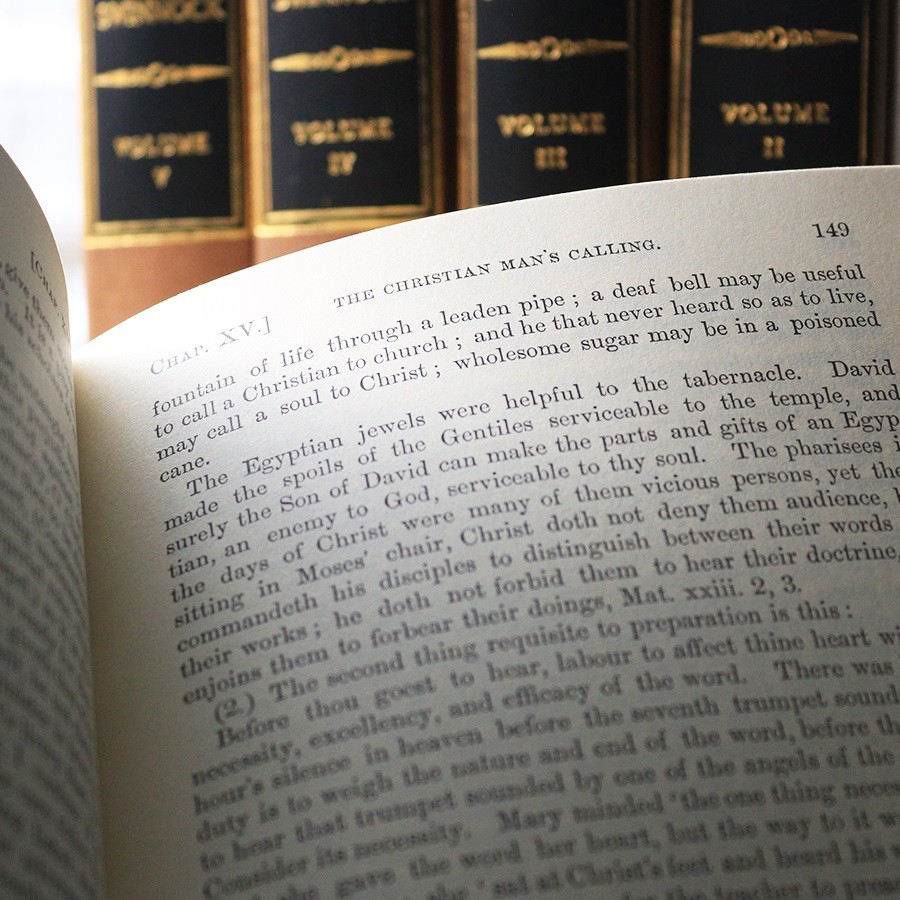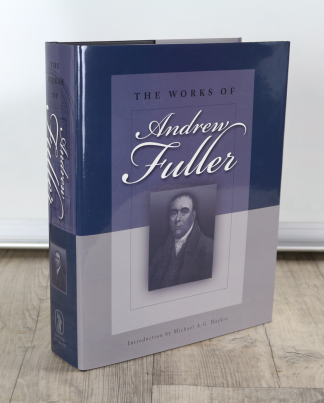The Works Of George Swinnock
5 Volume Set
Out of stock
| Weight | 8.72 lbs |
|---|---|
| Dimensions | 8.8 × 5.75 × 7.1 in |
| ISBN | 9780851516424 |
| Page Count | 2,526 |
| Format | Book |
| Original Pub Date | 1672 (actually 1868) |
| Banner Pub Date | Dec 1, 1996 |
| Topic | Encouragement, Life Issues, Man & Sin, Prayer, Salvation, Spiritual Growth, The End Times, Christian Thought |
| Binding | Cloth-bound |
Endorsement
His work comes ‘from one both of a good head and heart’. — THOMAS MANTON
‘George Swinnock had the gift of illustration largely developed, as his works prove…they served his purpose, and made his teaching attractive…there remains “a rare amount of sanctified wit and wisdom”.’ — C.H. SPURGEON
‘We confess that we have rejoiced in the writings of Swinnock as those that find great spoil. So pithy and pungent and practical, few books are more fitted to keep the attention awake, and few so richly reward it.’ — DR JAMES HAMILTON
‘Swinnock’s principal work, The Christian Man’s Calling, is one of the fullest, and, we venture to think, one of the best exhibitions of the gospel in its application to the ordinary affairs of life. There are few better works of practical religion in our language.’ — EDITOR of the NICHOLS REPRINT
Book Description
George Swinnock is one of the easiest of the Puritan authors to read. He is theological yet his doctrine is expressed in vivid fashion and, while he is practical, his counsel is marked by a keen sensitivity to the doctrines taught in Scripture. The five volumes of The Works of George Swinnock were the last major reprint to b undertaken in 1868 by James Nichol in his definitive series of the leading Puritan authors. They have long been rare and unobtainable in the secondhand market.
Volumes 1, 2, and the first part of Volume 3 of The Works of George Swinnock contain his best-known work, The Christian Man’s Calling. With characteristic Puritan concern for the integrity of truth and life, Swinnock ranges over the practical implications of Paul’s emphasis on ‘training for godliness’ (1 Tim. 4:7) He explores this in many areas: spiritual disciplines, personal lifestyle, relations in the home, marriage and daily work, in times of prosperity and adversity, in a hostile world and at the time of death.
Volume 3 also contains the ‘grave and judicious’ Heaven and Hell Epitomised and part of Swinnock’s valuable The Fading of the Flesh, an exposition of Psalm 73:26 on the theme of preparation for death.
In volume 4 The Fading of the Flesh is concluded. It is followed by The Pastor’s Farewell (Swinnock’s valedictory sermon in Rickmansworth) and three expositions of the work of the magistrate: The Gods are Men, The Beauty of Magistracy (by Thomas Hall) and Men are Gods. It concludes with a rich practical study of the divine attributes entitled The Incomparableness of God.
The Door of Salvation Opened by the Key of Regeneration, a ‘savoury treatise’ (Richard Baxter), opens volume 5. The Works then conclude with The Sinner’s Last Sentence, posthumously published sermons on Matthew 25:41-2 containing some two hundred pages of counsel on the seriousness of sin.
More items to consider:

Princeton and the Work of the Christian Ministry
2 Volume Set: A Collection of Addresses and Articles by Faculty and Friends of Princeton Theological Seminary
Description
Swinnock is one of the easiest Puritan authors to read. He is theological, yet his doctrine is expressed in vivid fashion. While practical, his counsel is marked by a keen sensitivity to scriptural doctrine. Approx. 520pp. per volume.

George Whitefield
2 Volume Set: Life and Times of the Great Evangelist of the 18th Century Revival
Description
Swinnock is one of the easiest Puritan authors to read. He is theological, yet his doctrine is expressed in vivid fashion. While practical, his counsel is marked by a keen sensitivity to scriptural doctrine. Approx. 520pp. per volume.





Testimonials
Submit your testimonial
There are no testimonials yet, would you like to submit yours?